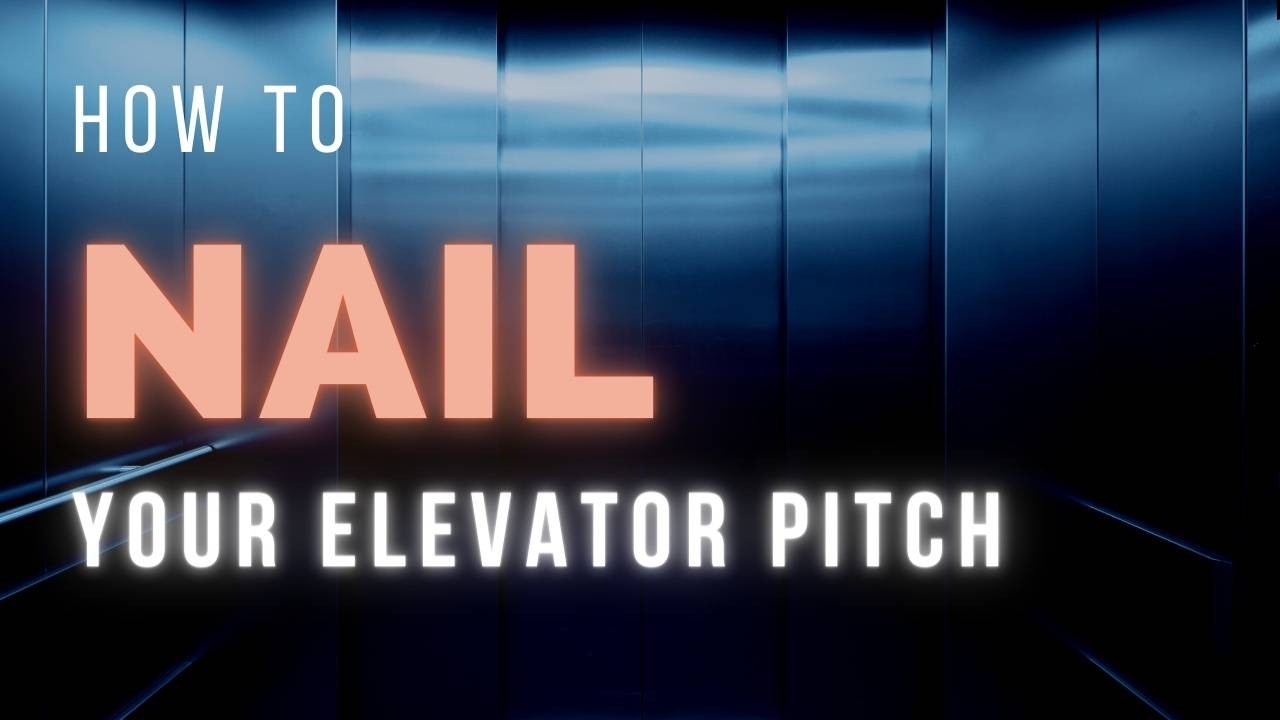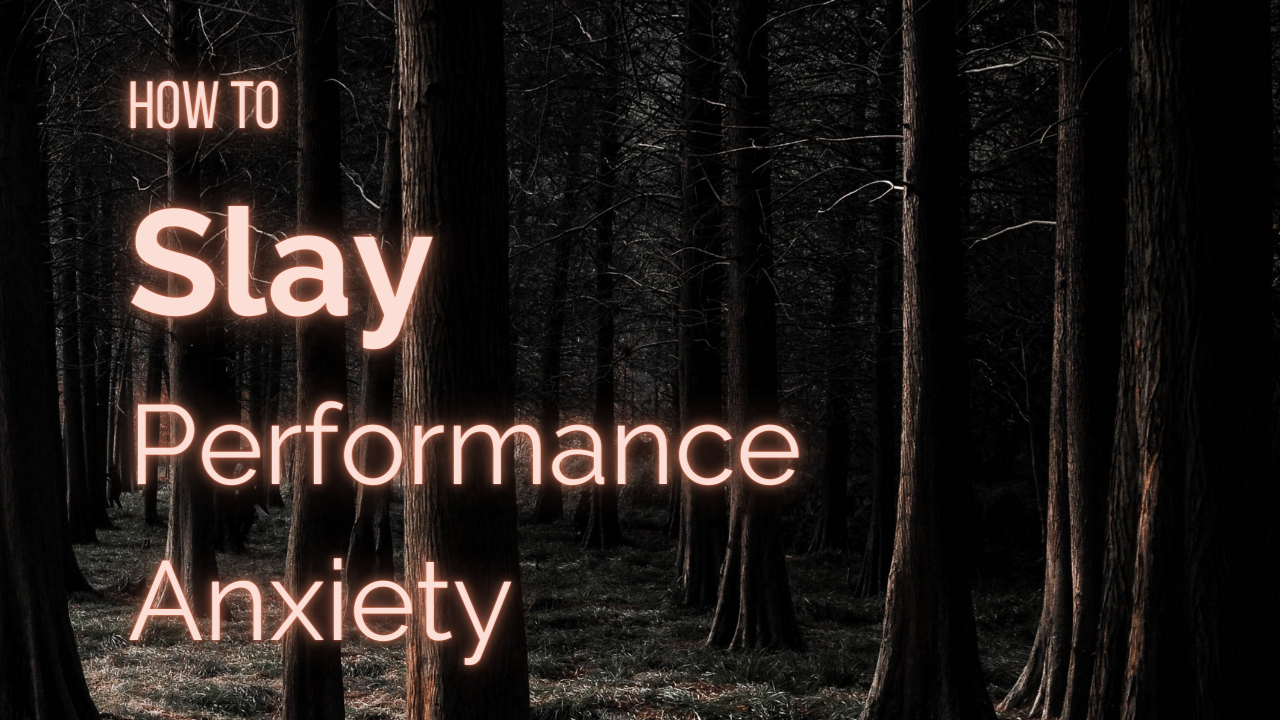How to Nail Your Elevator Pitch

“So, what do you do?”
If this question makes you break out in a cold sweat, read on!
Today we are talking about Elevator Pitches.
If you’ve ever gone to a networking event, you have most certainly seen an elevator pitch gone wrong.
Take Terse Tanya, for instance, who shuts down the conversation by not giving us enough information:
“Oh, I’m a lawyer.”
...
*Cue chirping crickets*
Or, even worse, Garrulous Gary, who gives us his whole life story:
“I’m an intellectual property attorney, but I got my start in tax law. Actually, it’s a funny story… when I was in undergrad, I majored in economics, but then... ”
*Five minutes later, he’s still talking but you have fully checked out.*
Obviously, neither of these situations is ideal.
So how do you strike a balance?
How do you answer the question, “What do you do?” in a way that is both succinct and engaging?
First, we need to slow down and figure out what target we’re aiming for.
What is the purpose of an elevator pitch?...
How To Slay Performance Anxiety

In honor of Halloween, I want to talk about a spooky subject that constantly graces my inbox...
Performance Anxiety.
You know the feeling. You step up to the mic or turn on your camera and suddenly it hits you:
- The racing heart
- The sweaty palms
- The tunnel vision
- The sudden deer-in-the-headlights look in your eyes
It's like you've just seen a ghost.
And then the spookiest thing of all happens...
Despite all the preparation you put into this presentation, you have this horrific realization:
You don't remember what you're supposed to say next.
👻 😱 👻
If you've ever experienced performance anxiety around public speaking (and I know I sure have), it really can feel like a supernatural event.
Especially if you normally have no problem speaking in front of a group.
I can't tell you how many times a client has come to me distraught and confused saying,
"I have no idea why I froze up during that presentation. I don't normally get nervous during those kinds of things!"
They're...
It's Too Damn Noisy in Here

How am I supposed to get through my presentation when everyone keeps talking? Try as I might, I can’t wrangle my thoughts and remember what’s on my next slide with this CONSTANT chatter.
It feels like every third word, someone is interjecting:
- “Sara, you tripped over that last sentence.”
- “Sara, there was a better way to say that.”
- “Sara, Gary looks bored.”
- “Sara, this isn’t how you practiced it at home.”
- “Sara, this is a disaster. Just speed through and put everyone out of their misery.”
It is too damn loud in here.
...Of course, by “in here,” I mean in my own head.
That’s right. Today we are talking about that chatty inner-critic.
We all have one. Some are chattier than others, but one thing all inner-critics have in common is this:
They are supremely unhelpful while you are presenting.
Don’t get me wrong, there is a time and a place for constructive criticism. However, that time is NOT in the middle of your presentation.
It’s impossible to connect and ...
You Lookin' At Me? (AKA The Missing Ingredient in Your Virtual Presentation)

As the world slowly begins to reopen, you know what I’m most looking forward to?
Eye contact.
Don’t get me wrong, hugs are high up on that list as well, but after over a year of Zoom meetings I am craving some actual eye contact.
But, since I doubt virtual meetings are going anywhere anytime soon, I thought I’d use this week’s newsletter to address the million dollar question:
How do I simulate eye contact on Zoom?
The short answer is probably pretty obvious:
Look directly into the camera when you’re speaking.
This is what reads as eye contact to the folks on the other end of the call.
When you look directly down the barrel of the camera, your audience feels like you are looking right into their eyes.
It’s one of the most powerful public speaking techniques you can utilize in the world of virtual meetings.
There is a problem with this technique though...It feels really weird.
Most of us, myself included, would much rather look at the gallery of faces in front of us...
Do You Speed Up When You Get Nervous? (Here's How to Stop)

Are you a speedy talker?
Me too.
I've always had a pretty peppy cadence to my speech, and spending the past 10 years in NYC has only made me sound more caffeinated.
Normally this isn't problem... unless I get nervous.
And unfortunately, even public speaking coaches occasionally get nervous when speaking in public.
This used to be a big problem for me.
If I forgot to take a couple minutes to meditate before a presentation, my normal trot of a speech pattern would quickly turn into a frantic gallop.
Suddenly, I'd be flying through slides, tripping over words, and, worst of all, losing my audience.
I was in denial about this for a while.
I thought, "So, I talk fast. What's the big deal? People like an energetic presentation!"
And that's partly true.
People do like an energetic presentation... but only if they can understand it.
I was forced to fully embrace this idea one spring when I almost drove off the side of a mountain.
(Maybe I should back up...)
A few years a...
A Very Christmas-y Cure for Monotone

One of the most common questions I get from my clients is:
How do I break the habit of speaking in monotone?
I can be presenting on the most interesting subject in the world, but when I start to speak in my boring voice, I see everyone’s eyes glaze over.
When I try to add more vocal variety, I feel weird and fake. HELP!
Do you relate to this?
Do you fear that your vocal style is that of Ben Stein in Ferris Bueller’s Day Off?
Bueller? Bueller?
Never fear! I’ve got a yuletide cure for monotone coming your way!
Let’s break this down for a second:
What is “monotone”?
Monotone describes a continuing sound, especially of a person's voice, that is unchanging in pitch and without intonation.
So, what’s the cure for monotone?
Adding variation in pitch and intonation!
See, wasn’t that easy?!
I kid, I kid!
Kind of…
See, here’s the problem:
We know the cure to monotone is adding variation to pitch and intonation, we just feel super weird and unnatural when we do it.
And th...
What if I Don't Have Any Interesting Stories to Tell?

“I don’t have any interesting stories.”
When I start working on storytelling skills with my clients, I almost always hear some version of this.
Sometimes it’s job-specific:
“Sure, I have interesting stories about my personal life, but how can I use storytelling when I’m giving a talk about interest rates?”
Some folks insist that even their personal lives are devoid of “story-worthy experiences”:
“What life experiences could I possibly pull from? I’ve barely left my house in 8 months!”
And look, I’ll level with you, it’s definitely easier to craft a compelling story when you’ve got something super dramatic to pull from.
But at the same time, we all know that compelling subject matter does not guarantee a compelling story.
You know this if you’ve ever sat through a relative walking you through a laborious play-by-play of their recent vacation.
Your eyes glaze over as Uncle David describes the security features at different airports.
You think to yourself,
“How is this s...
It's not Enough to be "Engaging"

I gotta level with you:
While it's important to learn how to be an engaging public speaker, being "engaging" isn't nearly enough to make you stand out from the crowd.
Every day I meet speakers who are engaging and charismatic as all get out.
They have stage-presence, they know how to create vocal variety, they tell amusing stories that have beginnings, middles, and ends.
But here’s the thing...
While they may be engaging, they aren’t effective.
Their audiences may go home amused or inspired, but they don’t take any sort of action.
What does this look like?
-
The entrepreneur who walks away from a speaking engagement with a very inspired audience...but no new clients.
-
The activist who leaves her audience thinking, “My God, that’s terrible! Something needs to be done!”...but they don’t do anything.
-
The academic who sets down the slide changer to their brilliant powerpoint and sees a crowd of faces that have learned something amazing....but have no way to ...
Why You Can't Find Any Public Speaking Opportunities

“I’d love to be a better public speaker, but the truth is, my job doesn’t really require me to do that.”
This is a sentence I hear A LOT.
Often, it’s the first response I get when I introduce myself as a public speaking coach to a new group of people.
And I totally get it.
Why invest in learning a skillset you’re not regularly getting asked to use?
But here’s the catch 22…
Speaking opportunities aren’t going to present themselves to you until you start presenting yourself as a skilled public speaker.
Let’s untangle that for a moment…
Here’s the pattern that I’ve seen emerge with client after client:
At the end of our first session, I’ll usually get met with a cautiously optimistic smile and something like this:
“I’m really glad I’m working on this, but I don’t think there are going to be a lot of opportunities for me to practice this week. I don’t tend to get called on during meetings.”
Then the surprised emails start rolling in...
Around week 2:
“Guess what?! There ...
Did Shakespeare Destroy Your Public Speaking Confidence?

"Oh God, I HATED Shakespeare in school."
This is the reaction I get from 90% of my public speaking clients when they learn that, before I was a public speaking coach, I taught Shakespeare performance at an Elementary/Middle School.
I didn't think much of it the first couple times a client said this.
After all, Shakespeare isn't everybody's cup of tea.
But after 5 or 6 clients said that exact phrase to me, I started to get curious...
Why was hating Shakespeare such a common experience among my public speaking clients?
Why was my experience with Shakesp...


